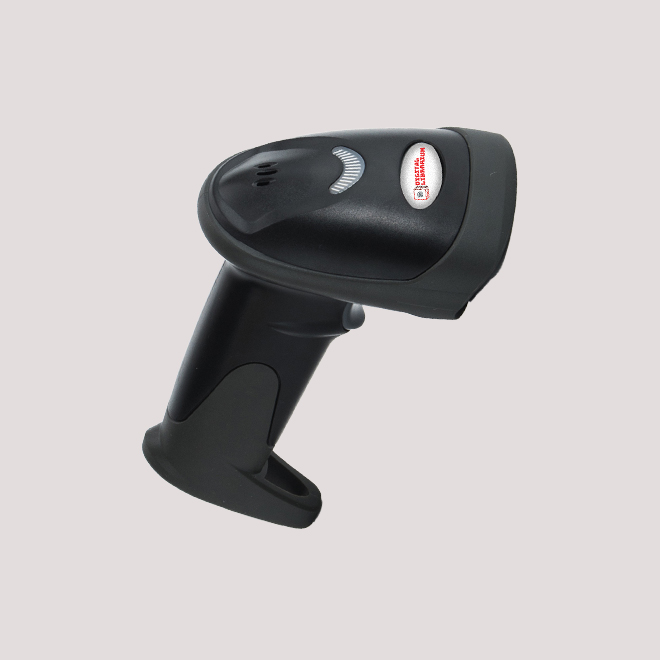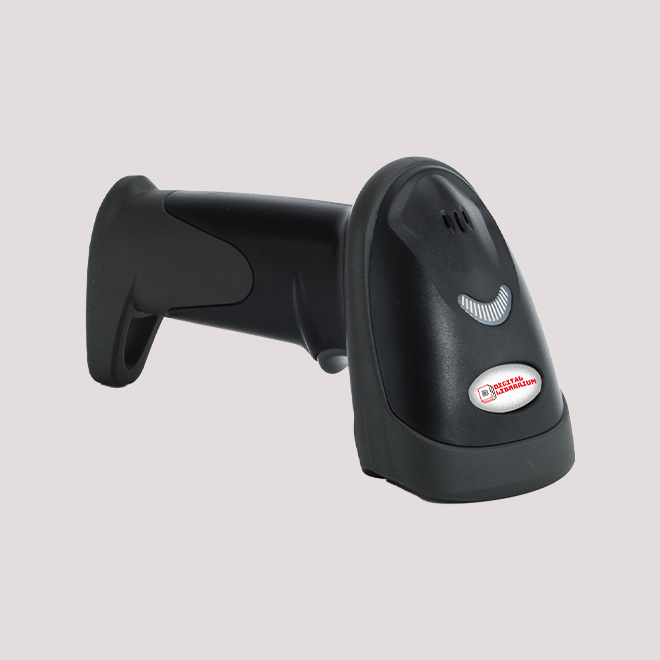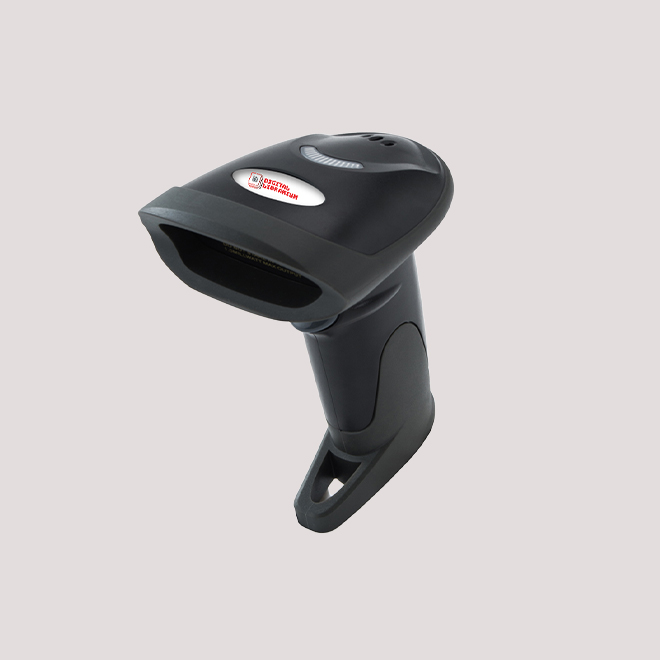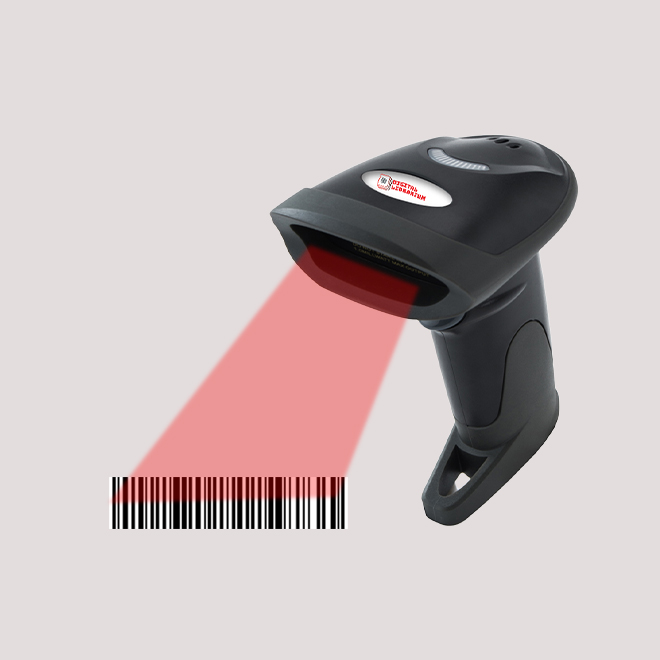Barcode Scanner
In a library conversion system, barcode scanners are instrumental in streamlining the process of converting traditional library materials into electronically tagged items, typically using RFID technology. Here's how barcode scanners are utilized in this context:
Retrieval of Item Information:
- Before converting traditional library materials (such as books, DVDs, or CDs) into electronically tagged items, library staff use barcode scanners to retrieve bibliographic information from the existing barcode labels affixed to each item. By scanning the barcode, staff can access metadata such as title, author, publication date, and other relevant details.
Association with RFID Tags:
- Barcode scanners are employed to link the retrieved bibliographic information with the corresponding RFID tags that will be applied to the items during the conversion process. This association ensures that the RFID tags contain accurate and consistent metadata, facilitating seamless integration with the library's management system.
Verification of Data Integrity:
- Barcode scanners play a crucial role in verifying the integrity of the data associated with each item during the conversion process. After scanning the existing barcode label and encoding the corresponding RFID tag, staff may perform a validation check to ensure that the encoded RFID tag accurately reflects the item's metadata retrieved from the library's database.
Batch Processing:
- In scenarios where large quantities of library materials need to be converted, barcode scanners support batch processing, allowing staff to scan multiple barcode labels sequentially and associate them with RFID tags in a streamlined manner. This accelerates the conversion process and minimizes manual data entry errors.
Quality Control and Error Detection:
- Barcode scanners are utilized for quality control purposes to detect any discrepancies or errors that may arise during the conversion process. Staff can use barcode scanners to identify mislabeled items, missing metadata, or other anomalies, enabling corrective actions to be taken promptly to maintain data accuracy.
Integration with Conversion Software:
- Barcode scanners are integrated with conversion software or systems designed specifically for library conversion projects. These systems facilitate the seamless interaction between barcode scanners, RFID encoding devices, and library databases, ensuring efficient data capture, processing, and management throughout the conversion process.
Overall, barcode scanners play a critical role in the conversion system of a library by enabling the accurate retrieval, association, verification, and quality control of bibliographic information during the transition from traditional library materials to electronically tagged items using RFID technology. Their use ensures data integrity, accelerates conversion workflows, and contributes to the successful implementation of RFID-based library management systems.



